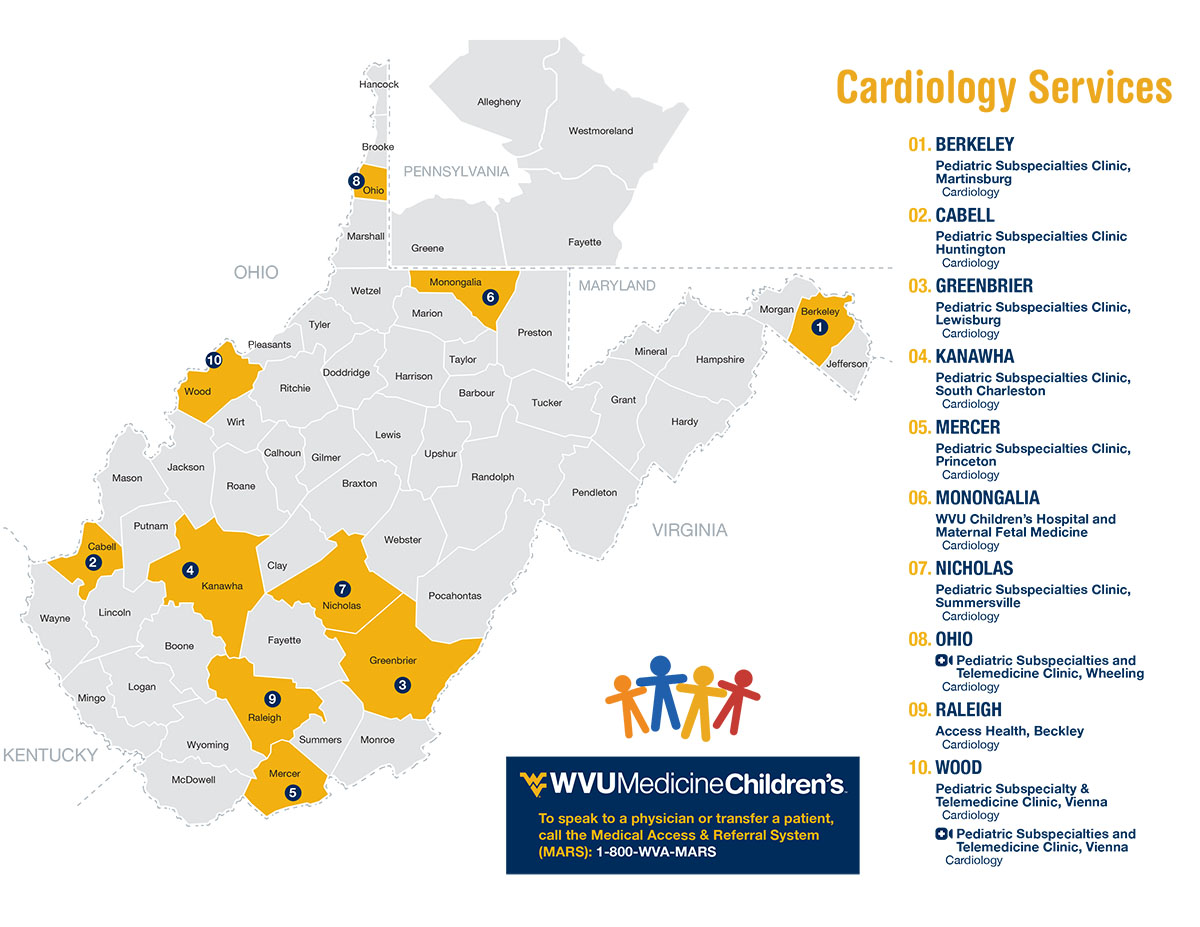Partnerships
WVU School of Medicine, Department of Pediatrics, Cardiology
WVU's pediatric heart program has an outstanding reputation. WVU is a member of the Pediatric Cardiac Care Quality Assurance Consortium and is the referral center for West Virginia and parts of Ohio, Pennsylvania, and Maryland. WVU's pediatric heart specialists perform about 250 cardiothoracic procedures, 100 cardiac catheterizations, and 3000 ultrasound examinations a year. Pediatric cardiology outreach clinics are held in six cities - Beckley, Huntington, Lewisburg, Martinsburg, Parkersburg, and Wheeling.
The Children's Preventive Cardiology Clinic provides consultative services for children who have severe dyslipidemia and their parents. The multidisciplinary clinic team includes pediatric cardiologists, nutrition counselors, exercise physiologists, and genetic counselors. Please visit the following website for information about WVU Medicine Children's pediatric cardiology clinics, with several outreach clinics across the state of West Virginia: https://childrens.wvumedicine.org/services/specialty-care/cardiology, for when it can be a challenge to drive to the main campus.

College of Applied Human Sciences at West Virginia University
The College of Applied Human Sciences at West Virginia University provides a holistic education that is designed to enrich the whole person- physically, emotionally, and intellectually. The College of Applied Human Sciences is comprised of three schools: the School of Counseling and Well-Being, the School of Education, and the School of Sport Sciences. Each school is committed to academic excellence, a supportive environment focused on student success and pioneering research: https://appliedhumansciences.wvu.edu/
WVU Extension Service, WV Family Nutrition Program
The Family Nutrition Program is comprised of numerous nutrition, food and physical activity projects designed to help limited resource families, youths, and adults improve their health. FNP targets risk factors associated with obesity, cardiovascular disease, diabetes, hypertension and other chronic diseases. FNP encourages the adoption of healthy lifestyle behaviors by teaching nutrition education using the USDA's MyPlate and Dietary Guidelines, providing food demonstrations, improving access and availability to local community resources, helping participants to stretch their food dollars, plan menus and read food labels, and encouraging participants to devote more time to being physically active. The FNP targets limited resource adults living at or below 185% of the federal poverty level and youths at schools, groups, or summer camps where more than 50% of participants are eligible for the free / reduced lunch program. The FNP is located in more than 40 counties with over 50 Nutrition Outreach Instructors and Health Educators. More than 2,000 volunteers help supplement that man-power needed to make this program a success.

